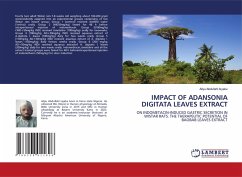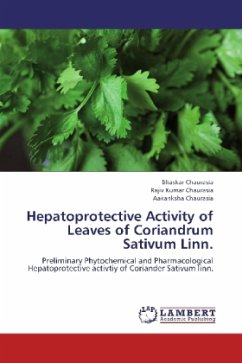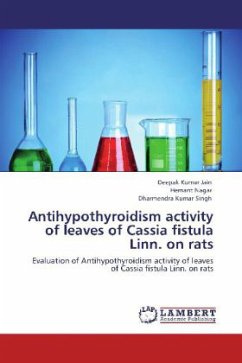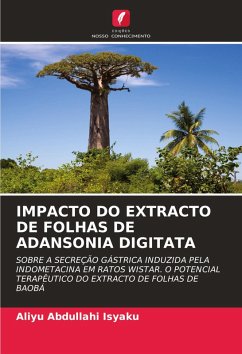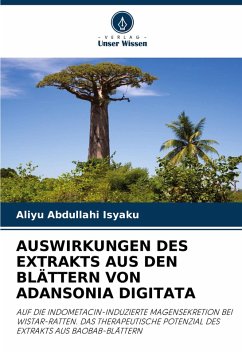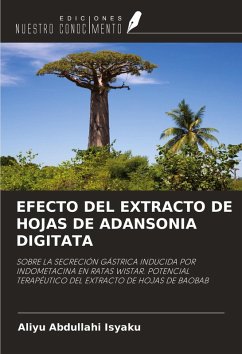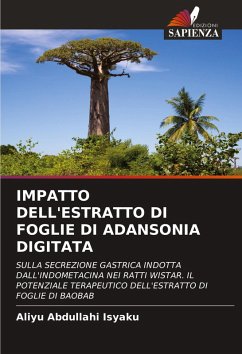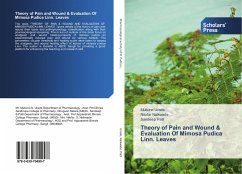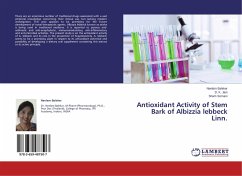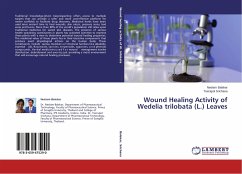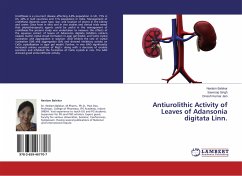
Antiurolithic Activity of Leaves of Adansonia digitata Linn.
Versandkostenfrei!
Versandfertig in 6-10 Tagen
27,99 €
inkl. MwSt.

PAYBACK Punkte
14 °P sammeln!
Urolithiasis is a recurrent disease affecting 4-8% population in UK, 15% in US, 20% in Gulf countries and 11% population in India. Management of urolithiasis depends upon type, size, and location of stones in the kidney and ureter. Data from in vitro and in vivo studies and clinical trials reveal that phytotherapeutic agents could be useful in the management of urolithiasis.The present study was undertaken to measure the effects of the aqueous extract of leaves of Adansonia digitata (AAD)on calcium oxalate (CaOx) crystal streak formation in agar gel model, and CaOx crystal nucleation and aggre...
Urolithiasis is a recurrent disease affecting 4-8% population in UK, 15% in US, 20% in Gulf countries and 11% population in India. Management of urolithiasis depends upon type, size, and location of stones in the kidney and ureter. Data from in vitro and in vivo studies and clinical trials reveal that phytotherapeutic agents could be useful in the management of urolithiasis.The present study was undertaken to measure the effects of the aqueous extract of leaves of Adansonia digitata (AAD)on calcium oxalate (CaOx) crystal streak formation in agar gel model, and CaOx crystal nucleation and aggregation in solution. AAD inhibits the rate of crystal nucleation (SN) and aggregation (SA) and showed inhibitory activity on CaOx crystallization in agar gel model. Further, in vivo AAD significantly increased urinary excretion of Mg2+ along with a decrease of oxalate excretion and inhibited the formation of CaOx crystals in rats. The AAD showed good antiurolithiatic activity.



